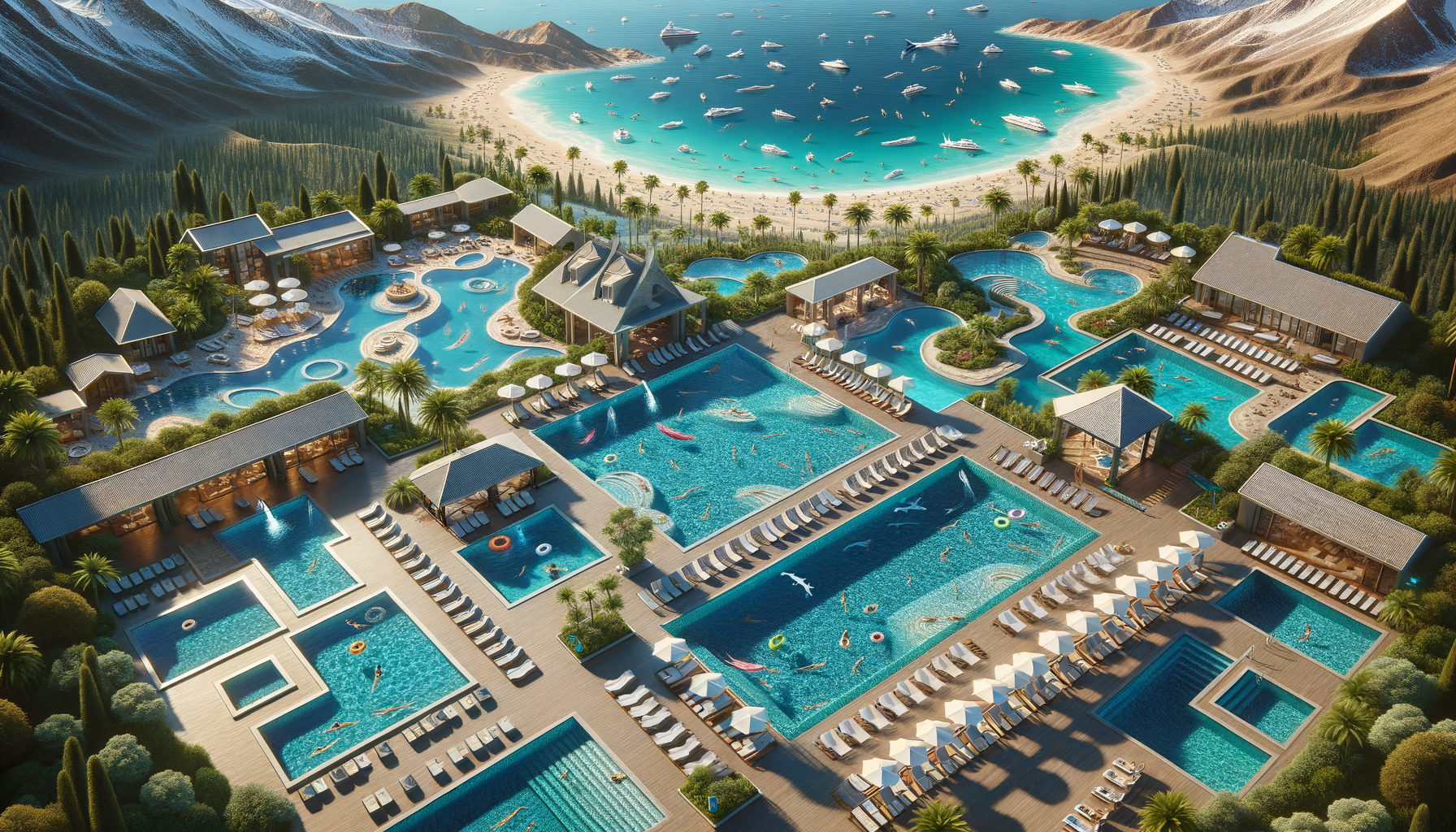The Allure of Outdoor Pools
Outdoor pools have long been a symbol of luxury and leisure, offering a serene escape from the hustle and bustle of daily life. They provide a perfect setting for family gatherings, pool parties, or simply a quiet afternoon of relaxation. The appeal of outdoor pools lies not only in their aesthetic value but also in their ability to enhance the quality of life. Whether it’s a small plunge pool or a sprawling infinity pool, each type of outdoor pool offers unique benefits that cater to different needs and preferences.
One of the most significant advantages of having an outdoor pool is the opportunity for exercise. Swimming is a low-impact activity that provides a full-body workout, making it an excellent choice for individuals of all ages. Additionally, outdoor pools can serve as a focal point for social interactions, encouraging family and friends to gather and create lasting memories.
Beyond recreation, outdoor pools can significantly increase the value of a home. A well-designed pool can boost curb appeal and attract potential buyers, making it a wise investment for homeowners. Moreover, with advancements in pool technology, maintaining an outdoor pool has become more manageable and cost-effective, further adding to their allure.
Types of Outdoor Pools
When it comes to outdoor pools, there is a wide variety to choose from, each offering its own set of features and benefits. Understanding these options can help homeowners make informed decisions based on their specific needs and preferences.
One popular type is the in-ground pool, which is a permanent structure that can be customized in terms of shape, size, and design. In-ground pools are known for their durability and aesthetic appeal, making them a preferred choice for many homeowners. They can be further categorized into concrete, fiberglass, and vinyl liner pools, each with its own advantages. Concrete pools offer flexibility in design, fiberglass pools are known for their smooth surfaces and low maintenance, and vinyl liner pools are often more budget-friendly.
Above-ground pools, on the other hand, are a more affordable and temporary option. They are easy to install and can be dismantled if necessary. These pools are ideal for those who want a quick and cost-effective way to enjoy swimming without the commitment of a permanent structure.
Infinity pools and natural pools are other exciting options. Infinity pools create a visual effect of water extending to the horizon, offering breathtaking views, while natural pools use plants and biological filters to maintain water quality, providing an eco-friendly alternative.
Design Considerations for Outdoor Pools
Designing an outdoor pool involves more than just selecting the right type. It requires careful consideration of various factors to ensure the pool complements the overall landscape and meets the homeowner’s needs.
The first step in pool design is determining the location. Factors such as sunlight exposure, wind patterns, and proximity to the house should be taken into account. A well-positioned pool can maximize sun exposure, reduce heating costs, and provide a comfortable swimming experience.
Next, the shape and size of the pool should align with the available space and intended use. A rectangular pool might be suitable for lap swimming, while a freeform pool could blend seamlessly with a natural landscape. Additionally, incorporating features like waterfalls, slides, or a hot tub can enhance the pool’s functionality and appeal.
Safety is another critical aspect of pool design. Installing appropriate fencing, pool covers, and alarms can help prevent accidents, especially if children are present. Moreover, choosing non-slip materials for pool decks and surrounding areas can reduce the risk of slips and falls.
Maintenance and Care of Outdoor Pools
Maintaining an outdoor pool is crucial to ensure its longevity and safety. Regular upkeep involves several tasks, each contributing to the overall health of the pool.
Water quality is paramount, and it requires consistent monitoring of pH levels, alkalinity, and chlorine content. Proper chemical balance prevents the growth of algae and bacteria, keeping the water clean and safe for swimming. Additionally, regular cleaning of the pool surface and filters helps remove debris and contaminants.
Seasonal maintenance is also necessary to prepare the pool for different weather conditions. In colder climates, winterizing the pool involves draining water, adding antifreeze, and covering the pool to protect it from freezing temperatures. Conversely, in warmer climates, ensuring adequate water circulation and filtration during peak usage times is essential.
Advancements in pool technology have made maintenance more accessible, with automated systems for cleaning and chemical monitoring available to reduce manual labor. However, it’s important for pool owners to remain vigilant and address any issues promptly to avoid costly repairs.
The Future of Outdoor Pools
The future of outdoor pools is shaped by innovation and sustainability. As environmental concerns grow, there is a shift towards eco-friendly pool designs and technologies.
Solar heating systems are becoming increasingly popular, allowing pool owners to harness renewable energy to maintain water temperature. This not only reduces energy costs but also minimizes the pool’s carbon footprint. Additionally, advancements in filtration systems are leading to more efficient water usage, with some pools capable of recycling and purifying water to reduce waste.
Smart technology is also making its way into the pool industry. Automated systems that control lighting, temperature, and cleaning schedules can be managed remotely through smartphones, offering convenience and efficiency. These innovations are set to transform the way we interact with and maintain outdoor pools, making them more sustainable and user-friendly.
As outdoor pools continue to evolve, they promise to offer even more benefits and enjoyment for homeowners, making them a valuable addition to any property.




Leave a Reply